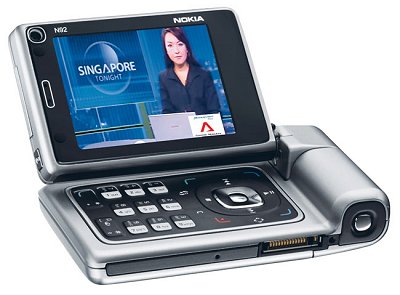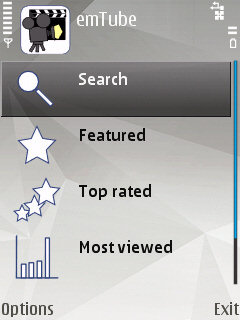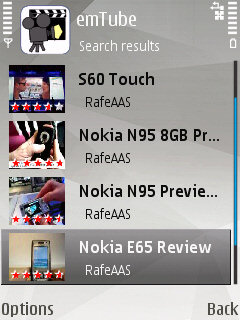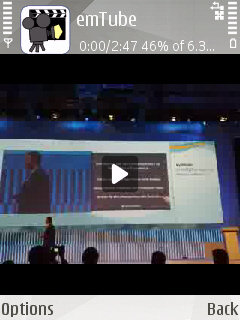You know, I was never really that enthusiastic about the idea of mobile TV in the first place. The parallels with mobile music aren't really appropriate, since:
- there are many activities for which you'll need music in your ears but for which you won't want to keep your eyes locked on a tiny phone screen
- you're going to be a bit of a sitting target in this crime-prone world, sitting on the bus or tube or train, with headphones on for audio and with eyes watching the aforementioned screen, making you oblivious to the approach of any wannabe muggers, after your obviously cutting edge DVB-H handset
- mobile TV, like traditional and cable TV, is a streaming service that just shows you whatever happens to be 'on', unlike music listening, where you actively select exactly what you want to hear
Now add in a huge, a whopping degree of lateness. I appreciate that there are DVB-H infrastructure costs, extra equipment to be installed in transmitters and/or cell networks in each country, but to be late, year after year, is just unforgiveable. I'm not singling out any manufacturer or organisation here, but rather the whole industry. In fact, I feel a little sorry for Nokia, developing its N92 and N77 and then seeing them almost entirely sidelined through lack of DVB-H infrastructure.

And now we see a threat from a different direction, one that would have been unthinkable when DVB-H and mobile TV was first being planned, two or three years ago:
- The rise and rise of YouTube, with content on almost any subject or musical/TV preference
- The fall and fall in the cost of mobile bandwidth (whether 3.5G or Wi-Fi)
- The appearance of several free YouTube (flash) video players for S60
All three factors combine to make mobile YouTube a distinct reality for most people, filling at least part of the niche for which mobile TV was destined. And applications like emTube are here now, not simply queued up for whenever a new tech system is rolled out in your country.



And it's also worth mentioning that with bandwidth costs falling and speeds rising, implementing a data-based mobile TV system (as Orange, for one, have done) is often practical, even though we all know that if it really takes off then the resulting data congestion would soon stunt its growth.
So.... Do you want to watch actual TV (news broadcasts, lifestyle programmes, cartoons, random music videos) in a year's two year's time ? Or would you rather watch specific content of your choice, served up via the likes of YouTube whenever you like and with full pausing/replaying/saving control now?
I think the overwhelming majority of people are going to be quite happy with the latter, to be honest.
(And yes, if the likes of emTube take off then the same data congestion problems may rear their ugly heads, but at least with YouTube content you're not expecting a real time feed and a short pause for buffering to take up any slack isn't usually a problem.)
Comments?
Steve Litchfield, AllAboutSymbian, 31st Dec 2007
